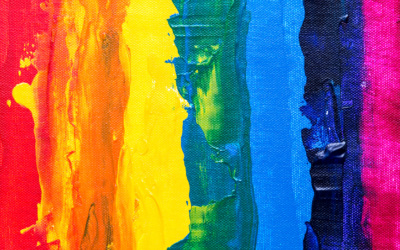Aziz Ansari’s Master of None, which recently released its second season on Netflix, has been hailed as original, artistic, and one of the best comedies currently on television, all of which are true. But it is also, perhaps most importantly, a show that highlights the necessity and effectiveness of diversity in American television. A television show on a major network about a young, Indian-American man living in New York, pursuing a career as an actor, dating, and exploring points of cultural interest is landmark. Or, to put it more succinctly, a show about a young, Indian-American man is landmark.
https://www.youtube.com/watch?v=6bFvb3WKISk
The show is premised around Dev, an extension of Aziz Ansari’s real-life persona into the world of television. Dev is a sporadically- single, aspiring actor living in New York city, exploring culture and dating and being Indian-American in America. Not every episode is oriented around the topic of race or diversity. Instead, Aziz Ansari and Alan Yang (creators and lead writers) have created a topical television collage, using each episode to explore a facet of cultural or social interest, which frequently will also function as commentary on the experience of being a minority in America.
For example, season 1’s episode, “Parents”, was a 30 minute discussion of the cultural chasms that can characterize relationships between immigrant asian parents and their American-born children: the almost too idealistic hope of making a better life in America, the old-hat discrimination unfelt by latter generations, and the frequent ingratitude of parental love. The episode went on to win an Emmy for best writing, and for good cause. Many of my asian-American friends who’ve seen the show have specifically called out that episode for speaking to experiences with their own parents.

Shoukath Ansari and Aziz Ansari in Master of None
Season 2 similarly has an episode that beautifully captures the familial difficulties of being gay, black, and female. The episode, “Thanksgiving” is told through 6 years of Thanksgiving dinners, and is about Denise (Lena Waithe), Dev’s black lesbian friend, first coming to terms with her sexuality and then dealing with the reluctance of her mother, played by Angela Basset, to accept her sexuality.
Like “Parents”, “Thanksgiving” feels authentic and true to experience, perhaps because the episode didn’t have to pass through a filter of cultural assumptions on the part of white writers or directors: Waithe co-wrote the episode with Ansari, and the director’s chair was occupied by Melina Matsoukas, best known for her music video collaborations with Beyonce. This episode will rake in nominations come awards season, and deserves to win a few.

Aziz Ansari and Lena Waithe in Master of None
Too often, in instances where stories of diversity are told, they’re written, directed, or produced by white people, who even with good intent, tend to massage out nuance in stories about minorities. Master of None, in having Ansari and Yang lead the show’s offscreen crew and writers, combats this practice, and illustrates the effectiveness of allowing people of diversity to tell their own stories.
Ansari also served as director for 4 of the 10 episodes this season, with Yang directing 2, and both having collaborated on the stories and teleplays for almost every episode. This show is as much about diversity off screen as it is about diversity on screen.
Beyond these explorations of niche diverse American experiences, Master also does work in normalizing minority characters as story protagonists in otherwise traditional plots. What would be an unexciting series of events in any network sitcom becomes enthralling in this show, if only because for the first time, I’m seeing an Indian or an Asian character experiencing it. Of course, Ansari and Yang’s tight writing and unique perspectives also elevate traditional plot points. Dev isn’t pigeonholed as the Indian character getting into Indian antics, he is the American protagonist, who happens to be Indian-American, living an American life.

Aziz Ansari and Noël Wells in Master of None
Aziz Ansari and Alan Yang have done well in producing a show that, better than any other, authentically captures the diversity and social woes of my generation. After the first season, I thought the title, “Master of None”, was meant to describe Dev and his shortcomings in the areas of dating, career growth, and any other number of things. But after watching season 2, I suspect that the title may actually represent the show’s thematic purview – “Master of None” isn’t trying to master one story, it’s a jack of all tales.



